Writing well about fly fishing isn’t easy. To pull it off, you have to avoid the usual tropes and clichés and you can’t afford to come off pretentious. That’s a difficult line to walk, because while our own experiences are important and dignified to us, will they matter to anyone else?
Good writers remove themselves—as much as possible—from the events and simply tell the story, inviting the reader along for the ride. A talented author will color the story with their own worldview or philosophy, but in a way that doesn’t force a conclusion on the reader. The very best writers do all that and add vibrant descriptions and lyrical prose without bogging down the story.
That’s what Dave Karczynski achieves in his newest book, Calling After Water. It’s a collection of 19 essays that, while they aren’t narratively connected, chart important moments along Karczynski’s life from his mid-twenties to the cusp of fatherhood at age 40.
I’ve read Karczynski’s work here and there, and knew of him vaguely as a travel writer who got invited to places most of us only dream about. Many of those trips are described in the book—jaunts to Alaska and one particularly incredible backcountry trip to Patagonia caught my eye the most—but they don’t feel stuffy or out-of-reach. Karczynski lays bare the sacrifices he made to travel this much (living in dorm-style housing with a shared bathroom and almost no possessions to his name) which helps the reader better connect with these far-flung locations. He’s not some trust-fund kid or affluent author spending his book advance to fish around the globe. Dave Karczynski is a tried-and-true bum, the kind I think we all secretly yearn to become. He’s also a supremely talented writer.
“There I was an adjunct writing teacher in a bad economy and subject to all the glories that came with that station,” Karczynski writes. “I did my laundry with quarters, held my Jeep together with duct tape and zip ties … I had no savings or retirement … But none of that mattered while the opportunity to catch beautiful fish in gorgeous environments persisted.”
Of catching his first brown trout in Poland—part of the fish’s native range—he writes, “I’m overcome by a feeling of being held together more resolutely in space, a barrel receiving its bands.”
Later on, in that same trip, Karczynski is observed by a family of hikers while he hooks and lands more brown trout.
“I’m reminded of how strange and magical fly fishing can appear, to pull perfect glittering confections of life from a few inches of crystal clear water where nothing could be seen but sand and cobble. How it seemed less like a fish had been living there, more like the river had simply pressed itself together into a shape of gold and silver, eaten the bug, fought the rod, and diffused into water again.”
During a separate trip to Poland, Karczynski writes of a grayling that refused his fly: “The great fish came within an inch of my bug, then tucked away behind the billowing cloak of its dorsal fin, like a vampire shirking sunlight behind its cape.”
I could fill the rest of this review with examples of his excellent prose, of descriptions that appear at first to be too gaudy, but are blended and brushed into a portrait not unlike the ones I see when I can only sit and dream of being on the river.
You should read the book and experience them for yourself.
What’s so remarkable about Calling After Water is that Karczynski marries that wonderful writing with legitimate storytelling. I found myself eager to continue reading, to learn what happened next, much in the same way John Gierach’s writing always kept my interest. There are seldom dull moments in Karczynski’s stories.
While most of the essays feature travel of some kind, a fair number take place in his native Michigan, going after the hex hatch, or chasing smallmouth bass. The story of Karczynski taking up fly fishing—when he was supposed to be finishing a novel—is as authentic a “first time” tale as I’ve ever read.
In reading some travel-centric fishing stories, I’ve often felt out of place, like the bum who gets invited to eat at a fancy restaurant because some rich guy felt bad for him. The food is great, and it’s wonderful to be inside out of the cold, but you can’t ever shake the sense you don’t belong. You can’t just relax and enjoy the meal.
I didn’t feel that way while reading any of Dave’s stories, which is a testament to his ability to make the fish, and the act of chasing them, the star of the show. Patagonia’s unspoiled mountains, or India’s glacial rivers, are important landmarks, but never the focus.
Calling After Water is an important book because it showcases how meaningful fly fishing is, yet Karczynski never takes himself—or his subject matter—too seriously. Fly fishing matters, but even for someone whose idea of a perfect night on the river “is one that sends me, face red and ears steaming, straight from the water to the vise to plot the following night’s revenge,” Dave doesn’t believe that it’s the culmination of man’s existence.
The book ends with Dave and his wife, Amber, a handful of months away from the arrival of their first child, a daughter named Summer. This lens colors the last chapter, and more than anywhere else in the book, shows off Karczynski’s chops as a writer.
“I did not know what the next fish after Summer’s arrival would be, when it would happen, what it would feel like, and whether it would still hold the same meaning to me as before. I suspected my relationship to water, and in turn my relationship to myself, would change in some fundamental way … So this trip is … a kind of farewell to a person I had been for a long time and would likely not ever be again.”
Not that I’m in charge of such things, but I believe this book has cemented Karczynski’s status as a can’t-miss author whenever he publishes something new.




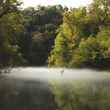
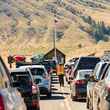
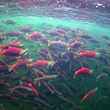
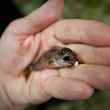
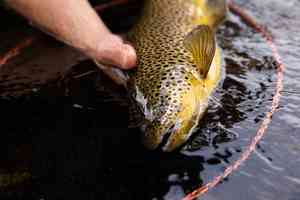

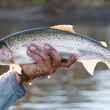

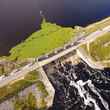
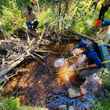

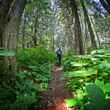



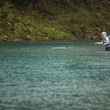
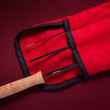



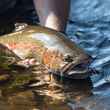
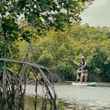
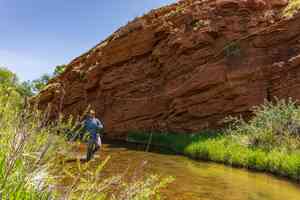
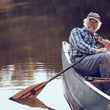
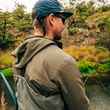
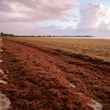
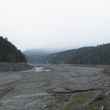
Comments